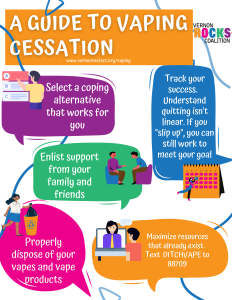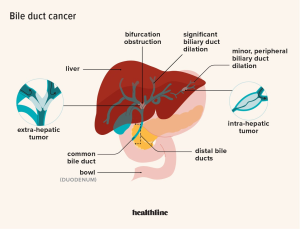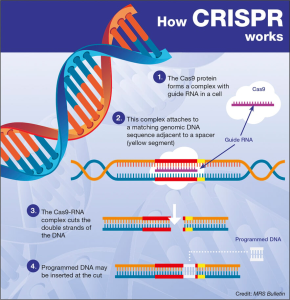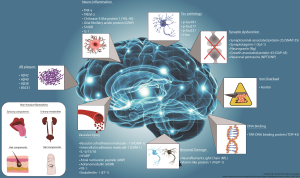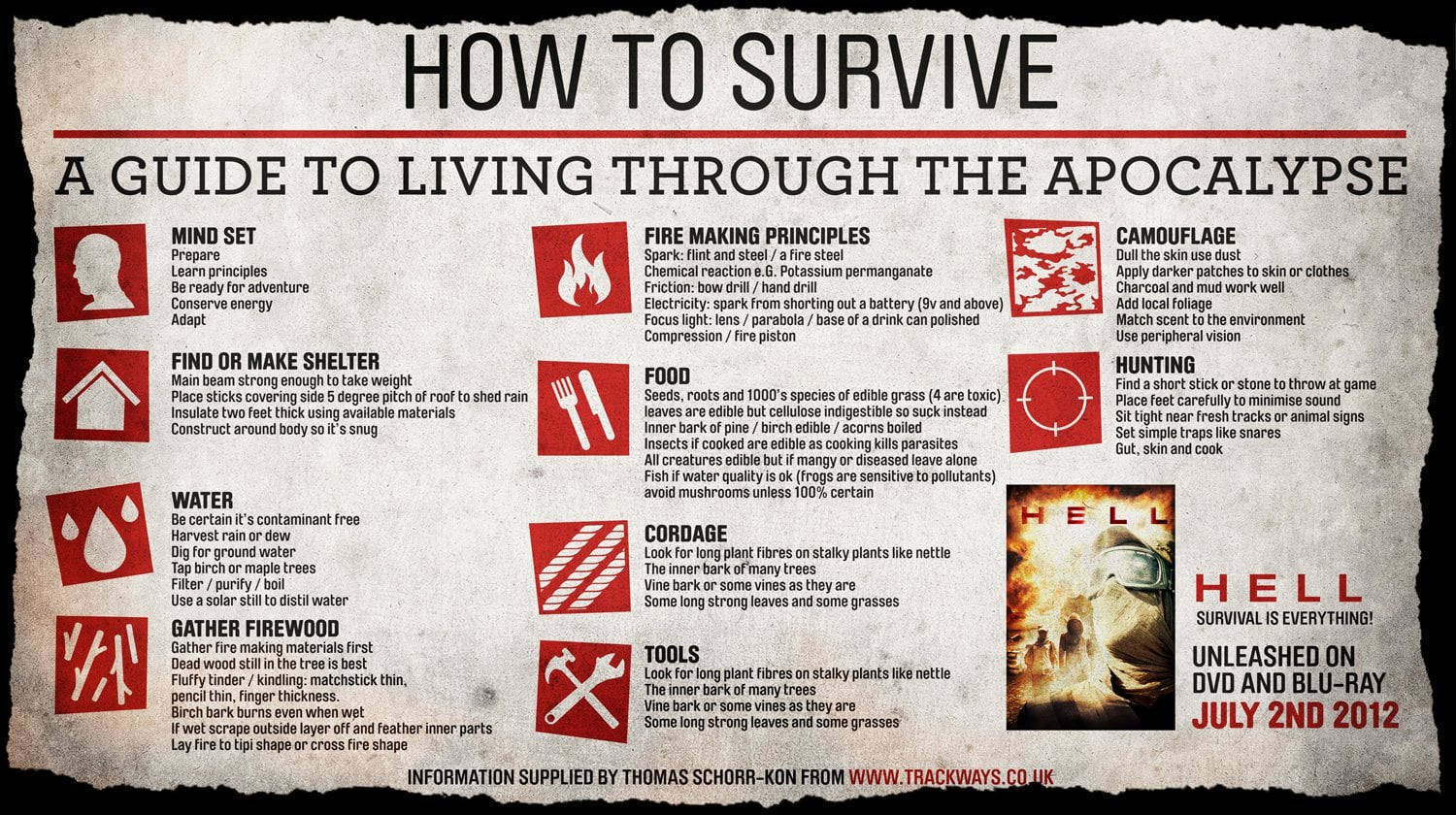
In an age fraught with uncertainty, learning how to manage stress during an apocalypse is crucial for our survival and emotional well-being. As society grapples with climate change, pandemics, and technological upheavals, effective stress management becomes a vital skill. The ability to cope with such crises not only enhances mental health but also fosters community cooperation, enhancing our collective resilience. Embracing strategies for surviving crises ensures we’re better prepared to face whatever challenges emerge. By developing a proactive mindset and establishing social networks, we can transform anxiety into action and find empowerment even in the bleakest times.
As we navigate through chaotic and transformative times, mastering the art of stress management in catastrophic situations becomes essential for thriving amid adversity. Whether facing environmental disasters, viral outbreaks, or societal shifts, honing our skills in navigating crises can be life-changing. The synergy of teamwork and support from our communities bolsters our mental fortitude, equipping us for unprecedented challenges. Finding creative outlets and instilling a sense of adventure amidst turmoil can reframe our approach to survival. By redefining our understanding of resilience, we open doors to innovative strategies that elevate our capacity to adapt and flourish.
Understanding Stress Management in Crisis Situations
Managing stress effectively during crises is crucial, especially in scenarios as extreme as an apocalypse. Stress management isn’t merely about coping; it involves an active understanding of the factors that contribute to stress and the application of strategies that can alleviate it. Emphasizing techniques such as mindfulness and cognitive reframing can help individuals recognize their stress responses and adopt healthier perspectives. This approach creates resilience against ongoing global pressures such as climate change, economic instability, and pandemics.
Moreover, recognizing the psychological foundations underlying stress can foster better mental health outcomes. By systematically analyzing the sources of our stressors and utilizing community support—whether through shared resources or emotional support—we can create a more robust framework for surviving crises. Collaboration and social interaction become vital in reducing the psychological burden during trying times.
Community Cooperation: A Vital Tool for Surviving Crises
In times of crisis, community cooperation is not just beneficial but essential for survival. Engaging with others allows for the pooling of resources, knowledge, and skills that can help navigate the complexities of living in a chaotic environment. Active participation in community activities can inspire trust and solidarity among members, which is invaluable when facing collective threats. The strength of a community lies in its ability to provide support, create networks, and foster a sense of belonging, enabling individuals to cope better with stress.
Furthermore, cooperation is linked to better outcomes during emergencies. Individuals who engage with their communities report lower levels of anxiety and stress, leading to enhanced mental health. By collaborating with others to tackle challenges, such as resource sharing or crisis planning, communities create a safety net that diminishes the weight of individual burdens. The shared experiences and mutual aid relationships formed in these communities play a significant role in enhancing resilience against various forms of apocalyptic stress.
Building Mental Resilience During Catastrophic Events
Mental resilience is a cornerstone of surviving catastrophic events. It enables individuals to withstand the psychological pressures associated with crises, whether they stem from environmental disasters or societal breakdowns. Developing this resilience requires deliberate efforts, such as reframing negative thoughts and embracing a growth mindset. Rather than viewing challenges as insurmountable obstacles, resilient individuals recognize them as opportunities for learning and growth, which can significantly reduce stress.
Additionally, involving oneself in activities that promote well-being—such as engaging in hobbies, cultivating a supportive social circle, and participating in community service—can fortify mental health. These actions not only provide a distraction from impending doom but also serve to remind individuals of the positive aspects of life, enhancing their coping mechanisms when facing adversities. In an apocalyptic scenario, maintaining a focus on resilience can transform the narrative from one of despair to one of potential and hope.
The Role of Adventure in Stress Reduction
In the context of apocalyptic survival, embracing adventure can act as a powerful antidote to stress. The thrill of exploration and new experiences can divert attention from distressing situations, acting as a form of escapism that energizes individuals and refreshes their mental state. As psychologist Athena Aktipis suggests, cultivating a sense of adventure can lead to healthier coping strategies, allowing individuals to confront the uncertainties of life with a hopeful and curious mindset.
Moreover, taking calculated risks in a controlled environment—whether through outdoor activities, creative endeavors, or social experiments—can enhance one’s confidence and adaptability. These experiences foster an understanding that the world, despite its threats, can also be beautiful and exciting. Embracing these moments can significantly alleviate stress, reinforcing the notion that personal growth often occurs outside of one’s comfort zone.
Practical Techniques for Information Gathering
Amidst the chaos of an apocalypse, effective decision-making often hinges on the quality of information one possesses. Developing practical techniques for information gathering can help individuals manage stress by providing clarity amidst ambiguity. Strategies include seeking multiple sources, cross-referencing facts, and engaging with diverse perspectives that challenge preconceived notions. This multifaceted approach enables individuals to divorce themselves from anxiety, equipping them with the necessary insight to respond appropriately to threats.
Additionally, being selective about the information consumed is vital. Continuous exposure to negative or sensational news can exacerbate feelings of helplessness and despair. Instead, focusing on constructive information that empowers and educates individuals can foster a sense of agency, which is crucial during distressing times. Learning when to step back from information overload is just as important as gathering it, allowing individuals to maintain mental clarity and reduce unnecessary stress.
Developing a Growth Mindset for Crisis Management
Cultivating a growth mindset can significantly influence one’s ability to manage stress during an apocalypse. This philosophy encourages individuals to view challenges as opportunities for personal development rather than insurmountable barriers. By embracing failures as learning experiences and maintaining a positive outlook amidst chaos, individuals can enhance their resilience and adaptability—two vital traits for surmounting crises.
Moreover, a growth mindset fosters a sense of agency and control, both of which are essential for mental health during turbulent times. Rather than falling into despair, those who adopt this mindset actively seek solutions and innovations that work toward survival and collaboration. This proactive approach not only reduces stress but also inspires others within a community to rally together in the face of adversity.
The Importance of Play for Mental Health
In times of crisis, integrating play into daily life becomes an invaluable tool for maintaining mental health. Engaging in playful activities—be it through games, storytelling, or arts and crafts—allows individuals to reconnect with their inner joy, providing a respite from the harsh realities of an apocalyptic existence. Play acts as a stress reliever, fostering creativity and imagination, which are essential for problem-solving during challenging times.
Additionally, communal play nurtures social connections, offering a platform for individuals to bond and foster friendships that could provide support during hardships. The shared laughter and camaraderie experienced during playful moments can create lasting memories that fortify social ties, proving critical in building a supportive community ready to face threats together. Thus, prioritizing play isn’t merely leisure; it’s a fundamental component of effective stress management.
Creating an Actionable Framework for Apocalyptic Survival
Establishing an actionable framework for navigating apocalyptic scenarios can significantly reduce stress levels. This framework should encompass various aspects of life, including preparedness, resource management, and community engagement. By setting clear goals and priorities, individuals can focus their energy on actionable steps rather than becoming overwhelmed by the enormity of potential crises.
Furthermore, integrating psychological principles into survival strategies—such as adaptive thinking, risk assessment, and proactive planning—can bolster one’s ability to manage stress. Encouraging individuals to remain solution-oriented rather than problem-focused creates an environment where collaboration and innovation thrive, key components in building resilience in the face of adversity.
Reframing Apocalyptic Outcomes: A Perspective Shift
Reframing the perception of apocalyptic outcomes is crucial in managing stress effectively. Instead of viewing an apocalypse as an insurmountable threat or the end of civilization, seeing it as a revelation or an opportunity for profound growth can transform one’s approach to crises. This paradigm shift diminishes feelings of helplessness and encourages individuals to act from a place of hope and possibility, rather than fear.
By adopting this perspective, individuals can channel their energies into actions that foster community resilience and personal development. Emphasizing the opportunities that arise from chaos—such as innovation, collaboration, and introspection—can enhance one’s capacity to cope with stress and adapt to changing circumstances, ultimately leading to a healthier state of mind during turbulent times.
Frequently Asked Questions
How can I effectively manage stress during an apocalypse?
To manage stress during an apocalypse, focus on gathering accurate information to distinguish real threats from false alarms. Engage in community cooperation to share resources, support each other, and build resilience. Additionally, embrace curiosity and humor in your daily life to alleviate anxiety and foster mental health.
What role does community cooperation play in surviving apocalyptic scenarios?
Community cooperation is crucial during an apocalypse as it fosters mutual support, resource sharing, and emotional strength. Collaborating with others enhances stress management by creating strong social bonds, which can provide essential aid during crises and help individuals cope with the challenges of apocalyptic survival.
What strategies can enhance mental health while managing stress during an apocalypse?
Strategies to enhance mental health during an apocalypse include practicing mindfulness, engaging in social activities, and maintaining a routine. Incorporating elements of play, such as storytelling and humor, can also lighten the emotional load and improve your overall ability to manage stress.
How can I maintain a balanced perspective when managing stress during an apocalypse?
Maintaining a balanced perspective when managing stress involves assessing threats from multiple angles and recognizing the ambiguity of situations. It’s important to identify what is genuinely threatening and what can be managed or ignored, allowing you to focus on adaptable solutions for surviving crises.
Why is it important to embrace adventure in stress management during apocalyptic times?
Embracing adventure is important in stress management during apocalyptic times as it fosters a sense of exploration and curiosity, helping to counteract feelings of despair. Engaging in new experiences can provide joy, boost morale, and encourage a proactive approach to overcoming challenges, which is vital for effective apocalyptic survival.
What is the significance of risk assessment in managing stress during an apocalypse?
Risk assessment is significant in managing stress during an apocalypse as it helps individuals discern between real threats and perceived dangers. By learning to evaluate potential risks carefully, you can reduce unnecessary anxiety and focus on practical survival strategies, thereby improving your overall mental health.
How can storytelling aid in managing stress during an apocalypse?
Storytelling aids in managing stress during an apocalypse by allowing individuals to process emotions, share experiences, and connect with others on a deeper level. This form of expression can foster resilience, create a sense of community, and reinforce social bonds that are essential for survival.
What are the benefits of social connections in stress management during apocalyptic scenarios?
Social connections provide emotional support, share valuable resources, and create a safety net during apocalyptic scenarios. These relationships can alleviate feelings of isolation and fear, promote cooperative strategies for overcoming challenges, and improve overall mental health in times of crisis.
How can humor be used to manage stress in an apocalyptic context?
Humor can be a powerful tool in managing stress during an apocalypse as it helps to diffuse tension, promote resilience, and foster community bonds. Engaging in playful activities and light-hearted interactions can enhance well-being and create a much-needed sense of normalcy amid chaos.
What can individuals do to build resilience when managing stress in an apocalypse?
To build resilience when managing stress during an apocalypse, individuals should prioritize self-care, maintain social connections, and stay informed without becoming overwhelmed. Developing adaptive coping strategies, fostering a sense of agency, and engaging in community efforts can empower individuals to navigate challenging situations effectively.
| Key Point | Description |
|---|---|
| Understanding Risk | Identifying threats and gathering information reduces unnecessary stress. |
| Community Engagement | Building connections leads to mutual aid and supportive relationships during crises. |
| Perspective Taking | Assessing threats from multiple viewpoints can provide clarity and reduce anxiety. |
| Embracing Playfulness | Incorporating fun activities into life helps maintain mental health during stressful times. |
| Cooperative Mindset | Working together rather than competing for resources can foster a supportive environment. |
Summary
Managing stress during an apocalypse is crucial for maintaining mental well-being amidst chaos. By embracing community, assessing risks wisely, and fostering a playful attitude towards life, individuals can navigate through adversity more effectively. A sense of adventure and cooperation not only enhances survival but enriches the human experience, turning potential crises into opportunities for growth and resilience.
